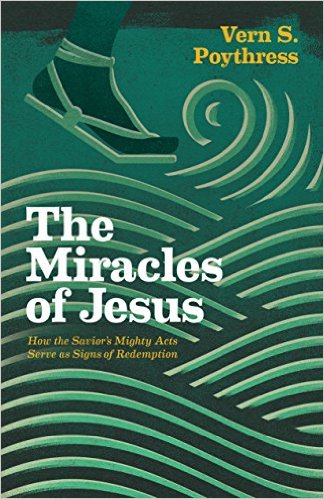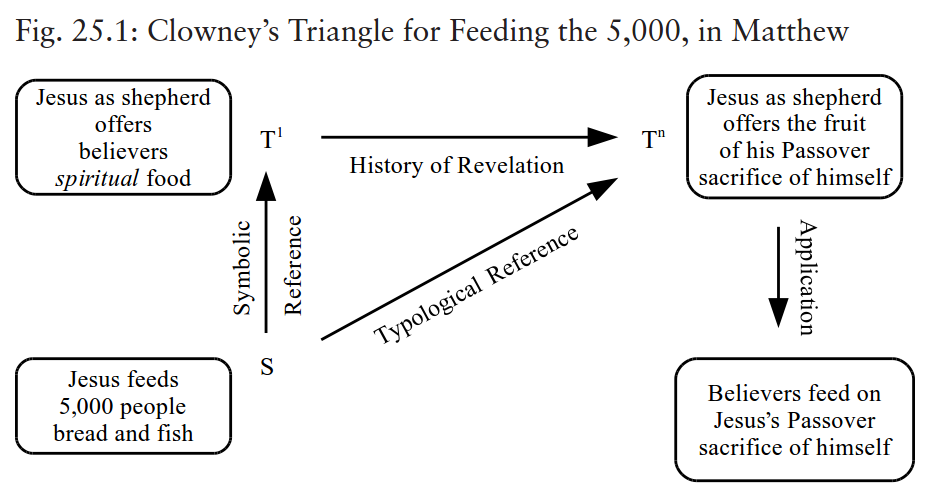The Miracles of Jesus: How the Savior’s Mighty Acts Serve as Signs of Redemption, by Vern Poythress (Crossway, 2016), 272 pages.
Vern Poythress is a true “Renaissance man.” He earned a PhD in math from Harvard. He studied linguistics with SIL. He knows philosophy quite well. And of course, he has a PhD in New Testament, which he has taught for a very long time at Westminster Theological Seminary. I had the pleasure of taking a hermeneutics course with him and it was a true tour de force of how various academic disciplines overlap.
Poythress has now focused in his new Miracles of Jesus on a topic that still overlaps a few academic disciplines (and it’s currently 40% off at the WTS Bookstore, $6 cheaper than Amazon’s prices). He focuses on the meaning of Jesus’ miracles, which necessarily involves a discussion of semiotics (a linguistics category), philosophy of language (what is “meaning?”), and theology. While he doesn’t focus much on the historicity of Jesus’ miracles, he does give a brief overview of the issues involved in the discussion (17-24).
Part 1 begins with the historicity issue and then the significance of miracles. Part 2 discusses the nature of miracles as signs. That is, miracles are not ends unto themselves, but point to something else; they act as signs to point to something signified. Throughout the book Poythress makes liberal use of the “Clowney Rectangle,” which is an illustration Ed Clowney came up with to show how one moves from the sign of a type to the signified of the antitype. The benefit of using the Clowney Rectangle to interpret the parables is that Poythress gives you a reproducible hermeneutic.
Part 3 consists of an exegesis of all the miracles in Matthew, passage by passage. Poythress moves briskly through the passage with mostly his own observations on the text. He explains what happened, what its symbolic referent is, how that symbolic referent is carried through redemptive history, and finally how it applies today to believers. Here is an example of his use of the Clowney Rectangle to explain the feeding of the 5,000.
Because each parable is explain briefly in Poythress’ own observations, there are hardly any citations in this work. The bibliography spans only 1 page, with 7 of the 27 works being Poythress’ books. That by no means implies that this is not a work of scholarship; as noted, Poythress’ academic education and cross-disciplinary education allows a work of this nature to remain useful for laymen and pastors while maintaining academic credibility.
But one may be left wanting much more in these expositions. The method to skirt through each miracle allows Poythress to cover every miracle in Matthew, but one may wonder if more rigorous exegesis (at least visibly performed) would have altered Poythress’ conclusions on what the spiritual referent is. What are other scholars saying about Matthew’s point in including the parable in its literary context? Are there any significant (and mostly obvious) redactional issues to deal with, e.g., if Mark’s version significantly differs from Matthew’s? If so, is the spiritual referent much different? Nevertheless, in its current form it reads easily and clearly and applies a consistent methodology.
Miracles of Jesus by Vern Poythress is 40% off at @wtsbookstore @crossway Share on XThis work seems ideal for small groups, who could take 4-5 weeks to learn the methodology in parts 1 and 2, and then read the chapters on 4-5 miracles a week. It would also be ideal for pastors who plan to preach on any of the Gospels, even though Poythress uses Matthew’s accounts. This book would also be useful for those who want to see an interdisciplinary methodology at work. When reading Poythress’ work, one can immediately see the benefits of becoming conversant in other related academic disciplines such as linguistics, philosophy, science, or even mathematics. The Miracles of Jesus is a gift to the church and a welcome tribute to Poythress’ faithful academic career.
Preview or buy it here for 40% off.
Like what we do here? Here’s five ways you can support us in just a few minutes at no cost to you.





